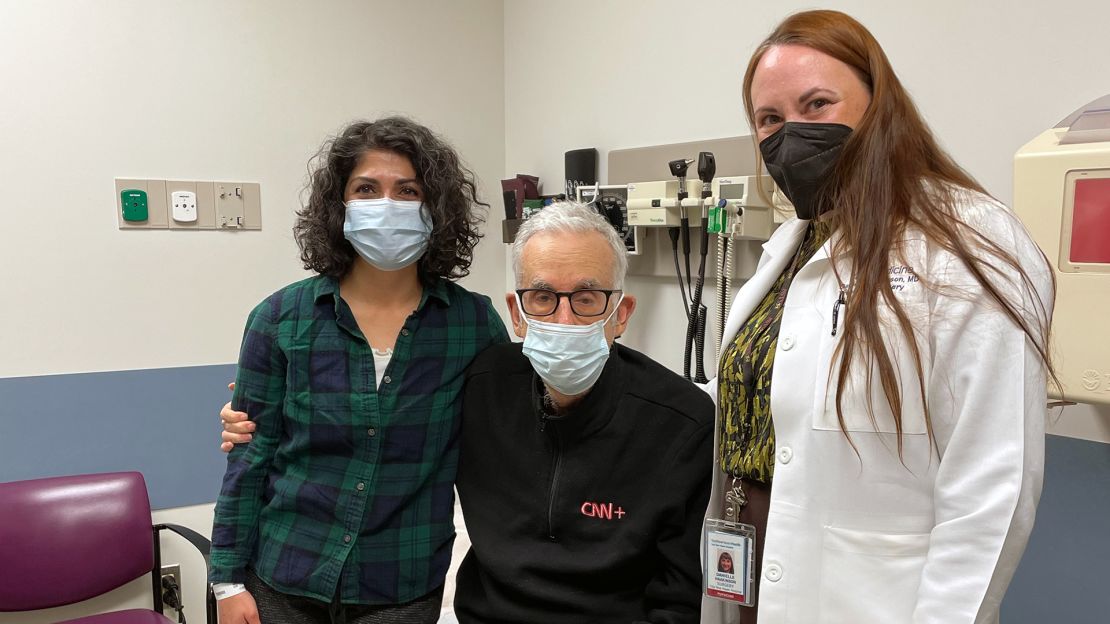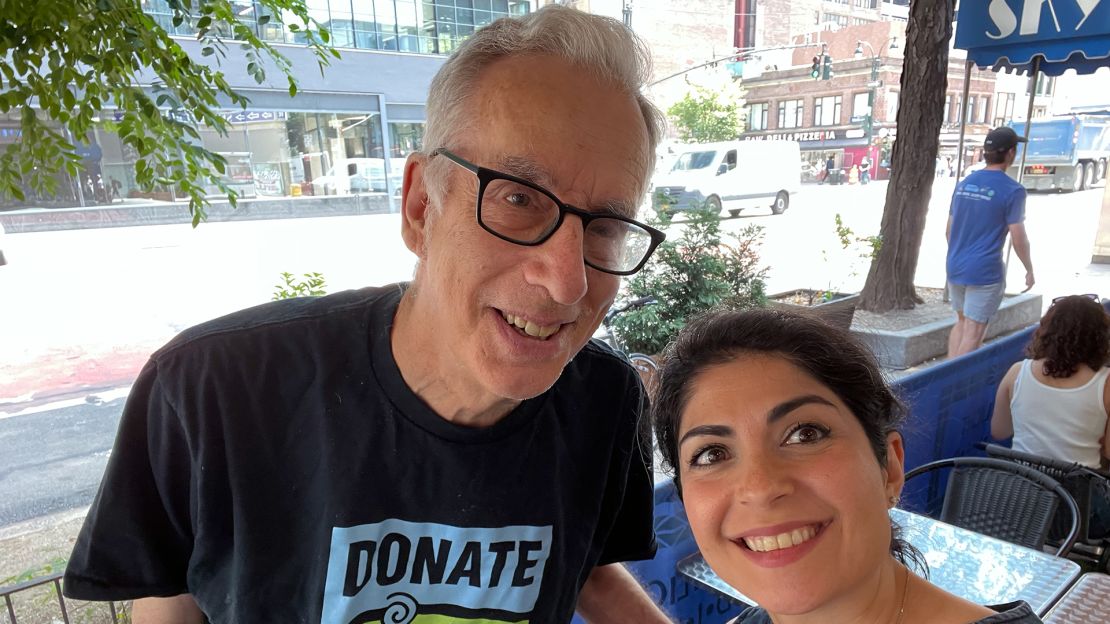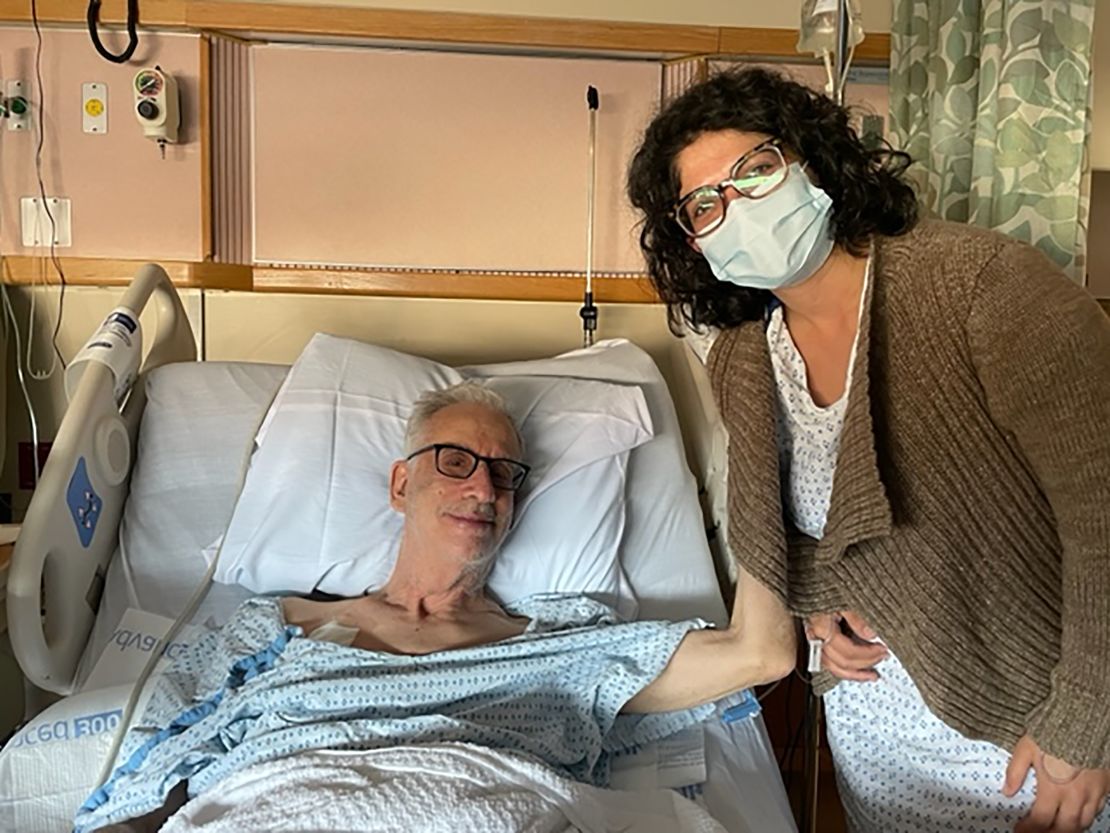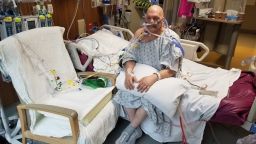Editor’s Note: Samira Jafari is deputy managing editor for CNN’s investigations team, based in Atlanta. The opinions expressed in this commentary are her own. Read more opinion on CNN.
I almost missed it.
A plea buried among the hundreds of email requests, updates, questions and answers. Sent on September 8, 2021, at 8:46 a.m. – before many of us have even had that all important second cup of coffee.
“I need your help. Urgently. To save my life. Please help me.”
The note was sent by senior UN correspondent Richard Roth to his more than 4,000 colleagues at CNN. His one functioning kidney was failing, and he was in urgent need of a donor.
I had never met Richard before. Like most, I admired, from afar, his doggedness and the gravity of his work – and the fact he’s our sole CNN original from the network’s very first broadcast. I didn’t know anything about him beyond what he laid out in the words of his breathless email, punctuated with what I would later learn was his trademark dry sense of humor.
“It doesn’t matter that we may not know each other right now. Many of you have lamented not working with me during your career. Here is that chance.”
I’ve had to look away from a lot of pain in my life – sometimes out of selfishness, sometimes for survival. Those terrible moments of feeling completely helpless I pushed aside with a deep breath and a change of scenery.
It’s the feeling I hate most.
But on that day, in the quiet comfort of working alone in my bedroom, I couldn’t look away.
At 9:18 a.m., I hit send on an email that read in part:
“It feels a little scary to even respond to your note – but I’m sure it’s a mere fraction of what you must be going through. Let’s discuss next steps. Maybe I’m the one who’s the right fit.”
What ensued in the months that followed was a litany of blood work and lab tests, quiet anticipation and personal questions. Poked and prodded on opposite sides of the East Coast, we kept our hopes up – even when everything from Covid-19 to timing tested our odds.
We kept it quiet, staying in touch over the phone and email as the tight short-list of potential donors was narrowed down. Richard had his fears: Would he be healthy enough for surgery? (Yes). Would I back out? (Absolutely not). And I had mine: Are my kids going to be ok with this? They say they are, but are they really ok with this?
My superstitious, if ineloquent, motto in such times is: “Don’t make it a thing till it’s a thing.”
And by the following February, it was indeed a thing. I was Richard’s match. An overextended, single mom of two with low-key fears of “what happens once they take it out … is it just a hole in there?” But still… his match.

In the early hours of April 12, 2022, the intrepid transplant team at Yale Medical Center removed my left kidney – which my son and I affectionately named “Kelvin” – and stitched it into Richard.
The next day, I met Richard for the first time when I gingerly stepped into his recovery room. He looked thin and weak, like he’d been through hell. But his smile was big, and I held onto that.
Still, in that moment, I didn’t know that I was meeting my friend for life.
Over the past year, my “kidney bestie” and I have stayed in close touch – catching up on trips to Atlanta and New York, sending photos of pets and receiving surprise birthday treats. Me trying to decipher his badly autocorrected texts and him begrudgingly admitting me into his baseball predictions contest. One of the greatest joys of my life was attending his niece’s wedding last fall as his plus-one. He killed his toast.
Richard has gotten stronger and back to work, doing what he does best – reporting the news.
I try to make sure I don’t miss any of his emails.
As we crossed our first transplant anniversary during this national transplant month, I pulled Richard into a proper catch up.
The following conversation has been edited for length and clarity.
Samira Jafari: I guess my first question is just how you’re doing these days. Is Kelvin being good to you?
Richard Roth: Oh, he’s doing OK. I will get another blood test soon to check it out. A month ago, the doctors said I had super numbers, but you can never let down your guard. So, I’ve always been cautious. But hitting a one-year mark with this kidney – I think it’s significant. Does it feel like a year to you?
Jafari: It kind of feels like the longest year and the shortest year to me. Like, wow, I can’t believe that it’s only been a year. But at the same time, I feel it was just yesterday that my dad and I were driving up to Connecticut. I wasn’t anxious about it. I just wanted to get it done because I knew I was going to do it.
So, I just remember that anticipation and that drive up there. But so many other things happened over this past year, too, that most days I kind of forget about the surgery – not because it wasn’t important, but because the transplant was so doable. It didn’t really affect my health in any way. It didn’t affect my career. It didn’t affect my family life. So, I guess that’s a good thing, right?
Roth: Yeah, definitely. I never let an hour go by without thinking about it, which is because I haven’t been as busy as I was in 1998, when I underwent my first kidney transplant.
Jafari: Right. I don’t think a lot of people know that you went through an earlier kidney transplant some time ago. You’ve been the proud owner of four kidneys now. I’m curious, how did this second transplant process compare to that first one?
Roth: I’m always interested in drama and a good story. The quest to get that first kidney, being on dialysis for the first time – it was painful and not good. And then I got a call at 6 a.m. one day from the Cleveland Clinic saying, “We might have a kidney for you, are you interested?”
The kidney was from a man who had died, and his wife wrote a letter to everyone thanking them. After giving me the letter, she said, “That’s it, you will not be hearing from me.”
A lot of kidney donors and their families don’t know the person who received the kidney. They just stay away. So, I’m glad after our transplant you stuck around, Samira. With your kidney, it was more business-like. As you said, let’s get it done.

Jafari: I’m like that with some decisions. I don’t know if it’s being a journalist or being a Capricorn or being a single mom or what. But I’m a horribly decisive person. Like once I sink my teeth in, they’re in – sometimes it’s a good thing and sometimes that’s a bad thing. But I think in a situation like this, it’s probably a good thing because I knew I wanted to donate – I just knew. I think there are sometimes that you can’t look away from stuff, and you just have to show up.
Roth: I think the big question everyone has is: Why did you do it?
Jafari: I often say it’s because I could. And that’s really true. But it’s a little bit deeper, and I don’t talk about that piece of it often.
I was starting to really feel helpless about a lot of things in the world – not just the state of the country. We had two colleagues at CNN who lost children to childhood cancer. And I just couldn’t fathom going through that, being a mother myself.
Get Our Free Weekly Newsletter
- Sign up for CNN Opinion’s newsletter
- Join us on Twitter and Facebook
I felt so absolutely helpless having learned their stories. How do you fix something like that? As journalists, in some ways, we’re so practical, right? And I really hate the feeling of helplessness. Having seen your email, I knew I could donate, and I knew I needed to do it because I really needed to snap out of feeling like I couldn’t fix anything anymore.
I know my kidney physically helped you, and I’m grateful for that. But I think in some ways it mentally and emotionally helped me. I think this was actually a mutually beneficial exchange.
What surprised you most about this whole process?
Roth: I guess how it was all just routine. There was much more desperation in me the last time. But you letting me know that you were eligible that early in September let me calm down a little bit. I wasn’t going crazy, but it was nice to know that at the end of this, you and your kidney would hopefully be there.
I still don’t remember our first meeting. I keep thinking it was the night of the transplant, but you say it was the next day.
Jafari: It was the next day because I just wasn’t up for doing anything but sleeping after the transplant. I felt like there was an anvil on my abdomen.
There was this wonderful nurse the next morning, and she said, “Oh, you’re going to get up, and you’re going to go see Richard.” And I said, “You’re kidding.” I didn’t believe her because I was so exhausted, but she was so nice and so motivating. She helped me up and got me to hold on to the IV pole. We took a few steps together and then a few more steps together. And the next thing I knew, I was asking, “Which way is Richard’s room?”
And that was the first time I ever met you in person. And after that I felt great. By that afternoon, I put my clothes on and I walked out of that hospital with my dad.
Roth: That is stunning. I mean, for people who are worried about donating an organ to someone, think about how you could waste a day on a weekend. But the alternative? You could save a life by just donating and get back on your couch 24 to 48 hours later.

Jafari: And I was back at work exactly three weeks after surgery, which isn’t a very long time when you think about it – you’re giving up a whole organ.
What do you think is the most common misconception about organ donation?
Roth: I guess people would say, “What if I need, you know, the other kidney?” But that’s why they test you before you donate, and also why you shouldn’t rush into something like this.
Jafari: I was so thoroughly impressed by the vetting that we went through. We went through Yale Medical Center, and they looked at everything. If I wasn’t healthy enough and wouldn’t have the best outcome possible, they wouldn’t have let me do it. I think one thing people might not know is that it’s a pretty high level of scrutiny – physically, medically, psychologically – to really make sure that you’re exactly the best candidate for that recipient. That gave me so much confidence.
Roth: You came to my rescue, and I have to constantly remind myself how close of a call this was. I mean, how many kidneys can you get? I have to protect your kidney.
Jafari: Well, I think you’re doing a good job with it. It’s actually kind of cool to think that my kidney is in Manhattan – a piece of me is in Manhattan just living the high life.




